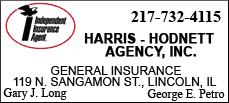 "If this were in bill form, it could not pass," Democratic Rep. Lou
Lang of Skokie said of Quinn's suggestions. "If this were in bill form, it could not pass," Democratic Rep. Lou
Lang of Skokie said of Quinn's suggestions.Lawmakers in May
passed a bill, with strong support from Chicago Mayor Rahm Emanuel,
that added five new casinos and slot machines at racetracks. But,
they haven't sent it to Quinn because they fear his veto and had
hoped to try to address his concerns. Quinn spent the summer talking
to proponents and opponents of the bill, and Monday marked his first
detailed comments about the pending legislation -- input lawmakers
had been anxious to get.
Quinn urged lawmakers to craft a new bill and not pursue the
original one they passed, because he said he would veto it if it's
sent to him.
"Unless these principles are followed, there's no way I will
approve a bill," Quinn said at a Chicago news conference.

Despite Quinn's concerns about slots at racetracks, he is
amenable to allowing five new casinos -- one each in Chicago,
southern Cook County, Rockford, Danville and Lake County. Quinn
said, though, that he wants the Illinois Gaming Board to choose the
location in Lake County rather than award a casino to the town of
Park City, as lawmakers wanted. Quinn's proposal also rejected slot
machines at Chicago's O'Hare and Midway airports, something
lawmakers approved.
Lang said not allowing slots at the tracks could scuttle overall
gambling expansion efforts because about a dozen lawmakers voted for
the bill only because it included that provision.
Slot machines are something track officials contend they need to
survive, to be competitive with other states, because the added
revenue would help fatten winners' purses. The governor said not
allowing slots at tracks is a way to avoid over-saturation in the
market and hurting other casinos.
Republican Rep. Richard Morthland, of Cordova, voted for slot
machines at tracks only to reinstate racing at the Quad City Downs
in East Moline. He said he won't support gambling expansion
legislation without it.
"Say bye-bye to my vote," he said.
Lawmakers don't have a lot of wiggle room when it comes to votes
on gambling expansion. The initial gambling bill passed with few
votes to spare, getting 65 in the House and 30 in the Senate. To
override any potential veto action by Quinn, lawmakers will need a
supermajority -- 71 in the House and 36 in the Senate.
[to top of second column]
 |

Quinn denied that a list of suggestions that will be unpalatable
to some lawmakers was his backhanded way to kill gambling expansion,
an idea he has never seemed too thrilled about.
Top Democratic lawmakers are figuring out what to do now that
Quinn has made his suggestions public.
"We will be evaluating the governor's framework in light of what
is passable by both chambers of the General Assembly. We look
forward to developing the appropriate compromise with the governor
and members of the House," said Rikeesha Phelon, a spokeswoman for
Senate President John Cullerton.
Emanuel's office said they were anxious to work with Quinn.
Emanuel lobbied lawmakers to pass the bill and put pressure on Quinn
to sign it, saying the city of Chicago needs the money it would
generate.
But Quinn didn't seem too keen on compromise.
"The bottom line is I'm the goalie, I'm the final word, and we're
not going to have a willy-nilly gambling bill in Illinois that is
not protecting integrity, that is way too big and excessive," Quinn
said.

Democratic Sen. Terry Link, of Waukegan, another prime sponsor,
said he was working on follow-up legislation that aims to keep slots
at tracks but addresses some of Quinn's other concerns. Quinn's
other suggestions included tightening up regulatory matters and
banning campaign contributions from gaming licensees and casino
managers.
Link said they can negotiate a bill if Quinn is willing to sit
down to do it.
"We are not a mile apart; we might be half- or a quarter-mile
apart," Link said.
[Associated Press;
By DEANNA BELLANDI]
Copyright 2011 The Associated Press. All rights reserved. This
material may not be published, broadcast, rewritten or
redistributed.
 |